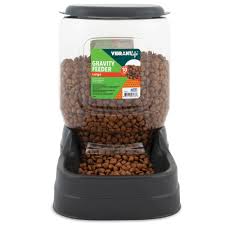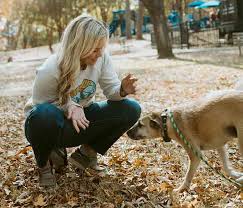The Importance of Joint Care for Dogs
Just like humans, dogs can experience joint issues as they age. Maintaining good joint health is crucial to ensure your furry friend’s overall well-being and quality of life. Here are some tips on how to take care of your dog’s joints:
Regular Exercise
Keeping your dog active with regular exercise helps to strengthen muscles around the joints and maintain flexibility. Low-impact activities like walking, swimming, and gentle play are excellent for joint health.
Healthy Diet
A balanced diet rich in essential nutrients, such as omega-3 fatty acids and glucosamine, can support joint health in dogs. Consult with your veterinarian to choose the best diet for your dog’s specific needs.
Joint Supplements
In addition to a healthy diet, consider incorporating joint supplements into your dog’s routine. Supplements containing glucosamine, chondroitin, and MSM can help promote joint lubrication and reduce inflammation.
Weight Management
Maintaining a healthy weight is crucial for reducing strain on your dog’s joints. Excess weight can exacerbate joint issues and lead to further complications. Ensure your dog stays at an appropriate weight through diet and exercise.
Regular Vet Check-ups
Schedule regular check-ups with your veterinarian to monitor your dog’s joint health. Early detection of joint problems can lead to better treatment outcomes and improved quality of life for your furry companion.
By incorporating these practices into your dog’s care routine, you can help support their joint health and keep them happy and active for years to come.
7 Essential Tips for Keeping Your Dog’s Joints Healthy and Strong
- Maintain a healthy weight for your dog to reduce strain on their joints.
- Provide regular exercise to keep your dog’s joints strong and flexible.
- Consider using joint supplements recommended by your veterinarian.
- Avoid activities that put excessive stress on your dog’s joints, especially as they age.
- Ensure your dog has a comfortable and supportive bed to rest their joints.
- Schedule regular check-ups with the vet to monitor your dog’s joint health.
- Be observant of any signs of joint pain or stiffness in your dog and consult a vet if needed.
Maintain a healthy weight for your dog to reduce strain on their joints.
Maintaining a healthy weight for your dog is essential in reducing strain on their joints. Excess weight can put undue pressure on the joints, leading to discomfort and potential long-term damage. By ensuring that your dog stays at an appropriate weight through a balanced diet and regular exercise, you can help prevent joint issues and promote overall joint health. This simple yet crucial step can significantly improve your dog’s quality of life and keep them active and happy for years to come.
Provide regular exercise to keep your dog’s joints strong and flexible.
Regular exercise is essential for maintaining the strength and flexibility of your dog’s joints. By engaging in consistent physical activity, such as walking, swimming, or gentle play, you can help strengthen the muscles around the joints and promote overall joint health. Keeping your dog active not only supports their physical well-being but also contributes to their mental stimulation and happiness. Ensuring that your furry companion gets regular exercise is a key component of a comprehensive joint care routine that can enhance their quality of life and longevity.
Consider using joint supplements recommended by your veterinarian.
When it comes to caring for your dog’s joints, a valuable tip is to consider incorporating joint supplements that are recommended by your veterinarian. These supplements, often containing beneficial ingredients like glucosamine and chondroitin, can help support joint health and mobility in dogs. Consulting with your vet ensures that the supplements are tailored to your dog’s specific needs, providing an effective way to promote overall joint well-being and enhance your furry friend’s quality of life.
Avoid activities that put excessive stress on your dog’s joints, especially as they age.
It is essential to avoid activities that put excessive stress on your dog’s joints, particularly as they age. High-impact exercises or rough play can strain their joints and potentially lead to injuries or exacerbate existing joint issues. Opting for low-impact activities like gentle walks or swimming can help maintain joint health without causing undue stress. By being mindful of the activities your dog engages in, you can protect their joints and support their overall well-being as they grow older.
Ensure your dog has a comfortable and supportive bed to rest their joints.
Providing your dog with a comfortable and supportive bed is essential for maintaining their joint health. A well-padded bed can help cushion their joints and provide relief from any discomfort or stiffness. By offering a cozy resting place, you can help prevent unnecessary strain on your dog’s joints, especially as they age. Investing in a quality bed tailored to your dog’s size and sleeping habits can make a significant difference in their overall comfort and well-being.
Schedule regular check-ups with the vet to monitor your dog’s joint health.
Regular veterinary check-ups are essential for monitoring your dog’s joint health. By scheduling routine appointments with your vet, you can ensure early detection of any potential joint issues and take proactive steps to address them. Veterinarians can provide valuable insights and recommendations to help maintain your dog’s joint health and overall well-being. Regular check-ups not only contribute to a healthier and happier life for your canine companion but also allow for timely intervention if any concerns arise. Prioritizing these check-ups is a crucial aspect of responsible pet ownership and shows your dedication to keeping your dog in the best possible condition.
Be observant of any signs of joint pain or stiffness in your dog and consult a vet if needed.
It is essential to be observant of any signs of joint pain or stiffness in your dog. Dogs may not always show obvious signs of discomfort, so paying attention to subtle changes in their mobility and behavior is crucial. If you notice any limping, reluctance to move, or difficulty getting up or down, it may indicate joint issues. Consulting a veterinarian for a thorough evaluation and appropriate treatment can help address the problem early on and improve your dog’s quality of life.




